
Nasso: The Support Troops
After the war, the king gave victory medals to all the troops. The combat soldiers were livid; they did all the fighting. Why are the cooks being decorated?

"Everyone who comes to perform the service of service…"(Numbers 4:47).
"Service of service", what could that possibly be? Rashi explains that this is a type of auxiliary service in the Holy Temple, such as the singing and instrument playing of the Levites, as opposed to the primary types of service such as performing one of the numerous tasks involved in the various types of ritual sacrifices. Although the auxiliary service is not a primary form of Divine service in the Holy Temple, it enhances and supports the primary service. For example, the daily burnt offerings of the morning and afternoon, the tamidim, require the musical accompaniment of the Levites and their singing, even on Shabbat. This auxiliary type of service is so important that today, despite the fact that we don't have our Holy Temple, we still commemorate the daily Psalm, or "song", that the Levites would sing during the morning's tamid offering by reciting the Song of the Day at the end of our Shacharit prayers, every day of the year.
A Levite in the Holy Temple doesn't sit in front of a campfire and sing or play his musical instrument for his own gratification. Everyone in the Holy Temple hears him, but he doesn't "perform" for the ulterior motives of popularity, monetary gain, or self-aggrandizement. He fulfills an important and integral role in the daily sacrifices, which were the most important sacrifices in the Holy Temple. For him, putting on tefillin and playing the flute or lyre is the same thing, done with equal devotion, to sanctify Hashem's Holy Name and to serve Him in whatever capacity that he is commanded.
A Kohen, on the other hand, is a member of the priestly tribe who performs the primary forms of service in the Holy Temple. Unless the Kohen refines himself and rids himself of any trace of arrogance, he might look down 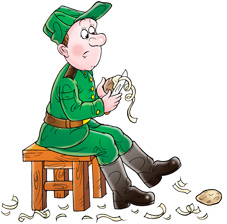 at the Levites, thinking that he is more important than they are. We can only imagine the chastisement that such a Kohen would receive in the Heavenly Court, thinking that his own primary service is important while the Levites' auxiliary service is expendable or even superfluous. The Heavenly Court would surely say, "Esteemed Kohen, do you think that your intent was 100% focused on Hashem when you performed your duties this morning in the offering of the tamid? You did your duties perfunctorily and passably, but not much more. It was the magnificent sixteen-part harmony of the Levites that embellished the morning burnt offering and made it so pleasing to the Almighty. You owe the Levites a debt of gratitude!"
at the Levites, thinking that he is more important than they are. We can only imagine the chastisement that such a Kohen would receive in the Heavenly Court, thinking that his own primary service is important while the Levites' auxiliary service is expendable or even superfluous. The Heavenly Court would surely say, "Esteemed Kohen, do you think that your intent was 100% focused on Hashem when you performed your duties this morning in the offering of the tamid? You did your duties perfunctorily and passably, but not much more. It was the magnificent sixteen-part harmony of the Levites that embellished the morning burnt offering and made it so pleasing to the Almighty. You owe the Levites a debt of gratitude!"
The following parable will help us further understand the concept of auxiliary service, what the Torah calls "service of service":
The king's army fought a fierce war against a cruel enemy. When the army returned home victorious, the king's ministers pinned a special victory medal on every single soldier. The infantry and the cavalry soldiers, the ones who bore the brunt of the fighting, were livid. They couldn't understand why the cooks, the shoemakers, the supply-wagon drivers, the ammunition carriers, the blacksmiths, the couriers and other such support troops deserved the same honor and recognition that they did. The king, upon hearing the complaints of the combat troops, chastised them: "Could you have fought on an empty stomach? Would you have been victorious without ammunition? And with torn soles on your boots, could you have moved so agilely on the battlefield? Your victory is due in large part to your comrades' faithful execution of their duties. Without them, we could not have prevailed."
By the same token, without the Levites fulfilling their duties so faithfully, the Kohanim cannot succeed.
The notion of auxiliary service is a vital lesson that we all need in our daily service of Hashem. Eating, drinking and sleeping are necessary functions in staying alive and healthy. Although these functions do not constitute such primary service of Hashem like learning Torah and praying, without them, one cannot serve Hashem. Therefore, they too are the auxiliary services that enable us to do the main service of learning Torah, praying and performing mitzvoth. Therefore, they too are "service of service". There is a world of difference between eating, drinking and sleeping in order to enhance our service of Hashem, and between performing these physical "auxiliary" functions to satisfy one's personal appetites. Moreover, when these functions are done with the express intent of enabling us to learn Torah, pray and better observe our mitzvoth, then they earn the merit of the mitzvoth themselves. One eats drinks and sleeps, yet is rewarded for these auxiliary functions just as the support troops in our parable received the same victory medals that the combat troops did. It's the "service of service" that when done faithfully, wins wars – both the material and the spiritual.


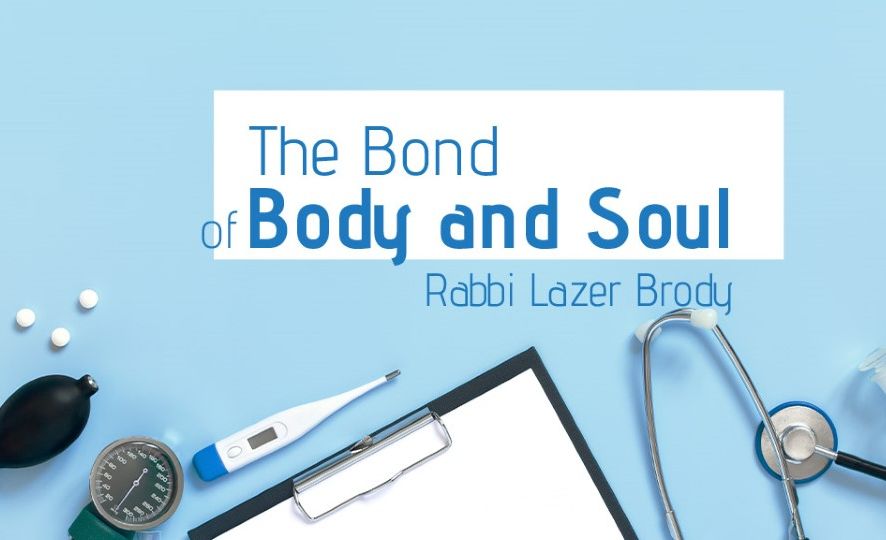




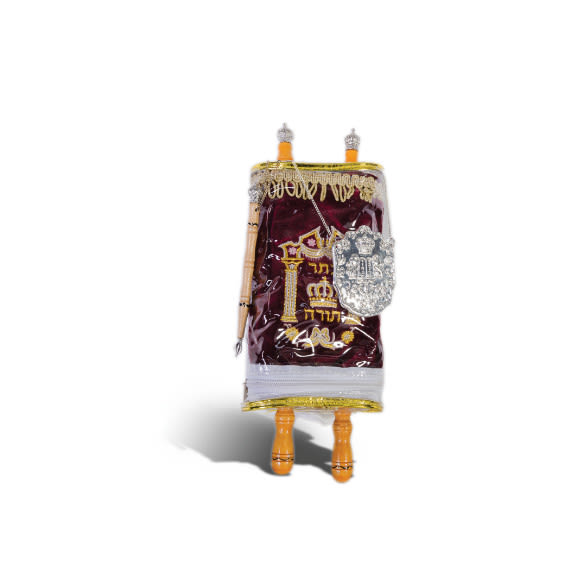

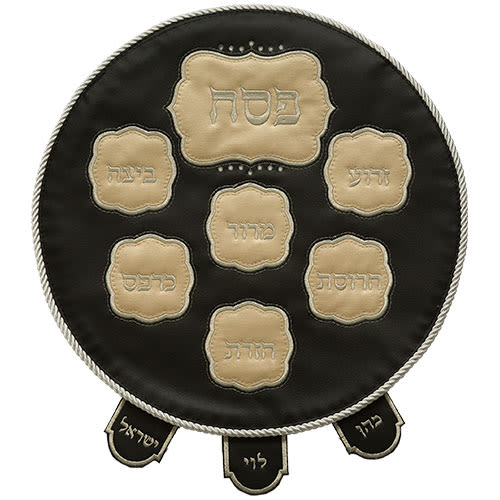

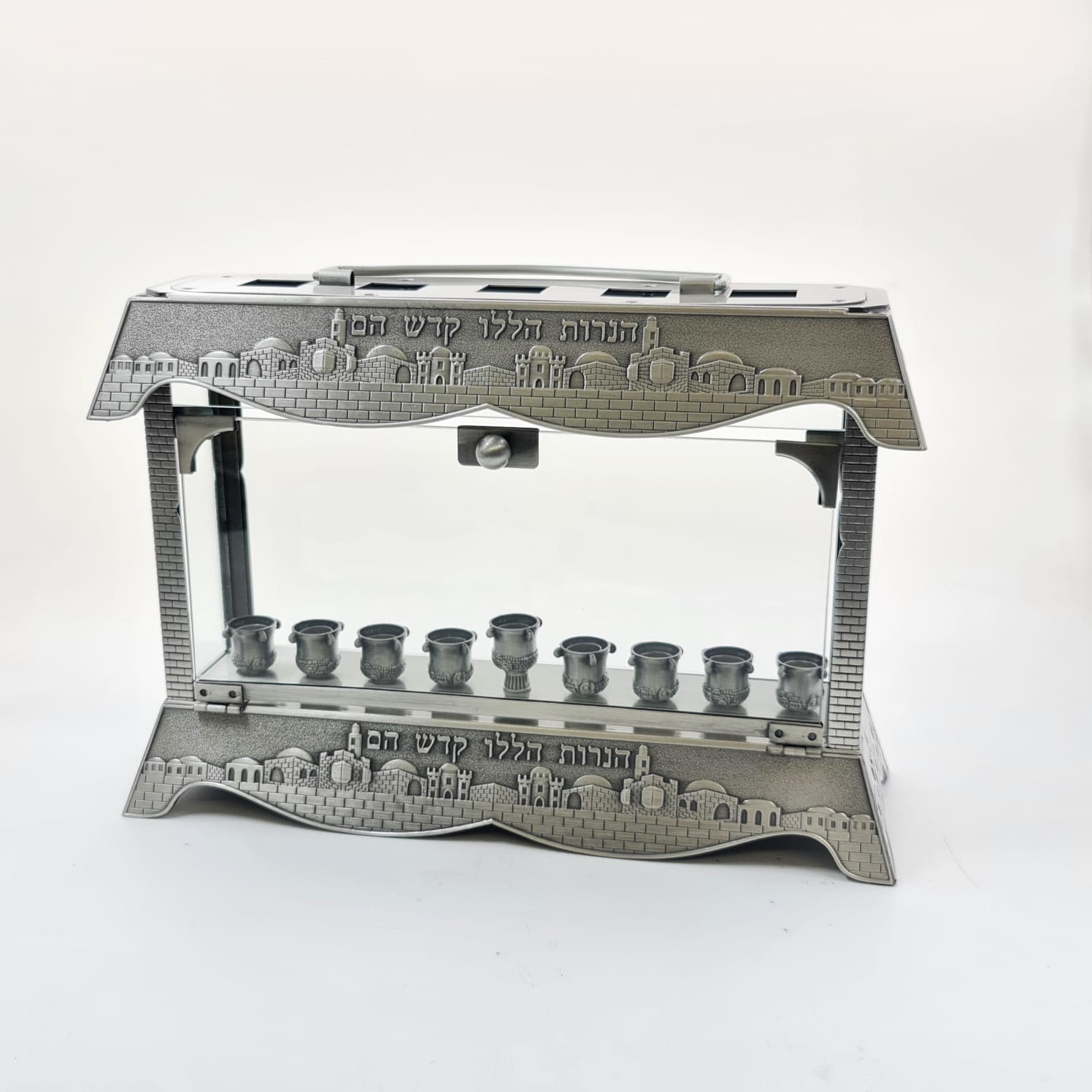
Tell us what you think!
Thank you for your comment!
It will be published after approval by the Editor.